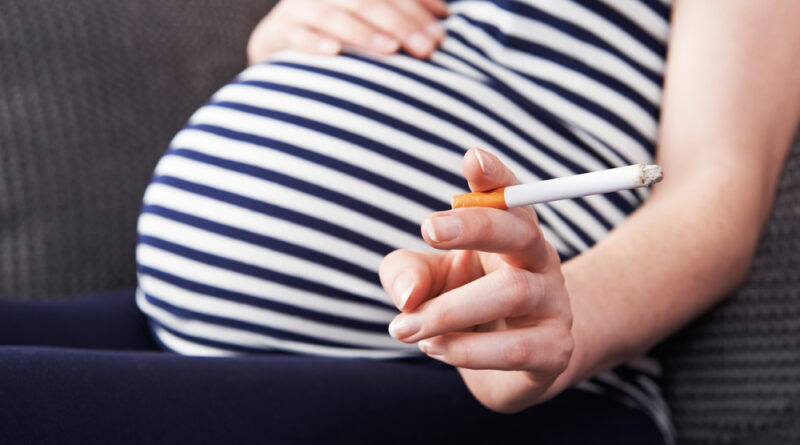Pregnancy & Addiction: What You Should Know
The miracle of life is a journey that begins with the nine-month expecting period. Once you hear the words from a doctor or see the faded double pink lines on a test, the life-changing realization begins. With a new human in your belly, it is a critical time to seriously consider how your current lifestyle will affect the baby.
Drug use is probably the first lifestyle issue to consider. If the mother has a history of habitual drinking, injecting, or smoking, chances are the baby will develop a dependency, resulting in several medical issues. However, with regular doctor’s appointments, ultrasounds, and other visits to medical facilities, interacting with medical practitioners can put an addicted mother on the path to recovery.
In some states where drug use runs high, such as California, infant exposure to illegal substances, whether through the placenta or breast milk, has nearly doubled since 2008. If the mother is addicted, quitting “cold turkey” may not be possible and treatment options should be undertaken with professional help.
How to Know If Someone Is Addicted
Individual cases of addiction are always different. Though many abusers have a history of homelessness, dysfunctional relationships, poverty, or mental illness, there is no one-size-fits-all treatment for substance abuse. Drug addicts can come from any environment and any life circumstances. That being said, symptoms of use tend to be universal.
Common symptoms of substance abuse include:
- Poor work performance (tardiness, bad reviews, disinterest in duties)
- Changes in appearance and lack of grooming
- Increased requests for privacy
- Obvious relationship changes
- Requests to borrow money
- Decreased appetite and weight loss
- Defensiveness or irritability
- Poor skin tone and eye clarity
Common symptoms of alcohol addiction include:
- Preference to drink alone or secretly
- Insistence on drinking despite related personal problems
- Depression, irritability, and mood swings
- Use of alcohol as a coping mechanism
- Denial of addiction
Commonly Abused Substances
Interference with fetal growth can have permanent consequences. Because nearly every drug has a unique set of side effects and long-term repercussions, it could be difficult to pinpoint the precise effects on each expectant mother and unborn child. Complicating matters further, many fetuses growing in abusing hosts are exposed to multiple substances at once.
Some of the most commonly abused substances include:
- Nicotine
- Tobacco
- Alcohol
- Prescription drugs
- Street and illegal drugs
Some medications are safe to use while pregnant. Doctors should be consulted about the use of dietary supplements, aspirin or ibuprofen, and other prenatal vitamins. While they may be technically considered “safe,” many over-the-counter medications have doses that are too high to be taken while pregnant.
Consequences of Addiction
Not only are there many physicals, mental, and emotional consequences to addiction among pregnant mothers, there are also societal ones. Stigma is one of the major barriers to treatment for addicted women. Many women who seek medical care feel judged or fall at the hands of malpractice due to moral outrage and discouraging discussions that surround the issue of addiction and pregnancy.
About two-thirds of women who abuse substances do so because of concurrent mental health issues. Anxiety, depression, PTSD, or a history of physical or sexual assault might drive women to abuse drugs as a form of coping. Assuming that the mother can simply stop using it because of the pregnancy could be counterproductive.
In the instance of hard drugs, the baby can become addicted in the womb and show signs of withdrawal upon birth. This is often when social services may become involved and doctors begin to treat the baby for its addiction.
Relapse
Achieving sobriety with pregnancy as a catalyst can be more difficult than a regular recovery journey. Though addiction is considered highly treatable, the relapse rate is estimated between 40% and 60%. Unfortunately, about a third of foster care children in the United States enter the system because of parental drug abuse.
More than 90% of opioid users, between 80% and 90% of nicotine users, between 50% and 80% of alcohol drinkers, and between 40% and 80% of cocaine users will relapse with or without professional treatment. Though rehab programs can help lower the likelihood of relapse, a setback in long-term sobriety is often expected. The three stages of drug relapse, also known as emotional, mental, and physical relapse, are usually caused by triggers.
Women who are addicted to drugs may find pregnancy a wake-up call to recovery. However, if relapse occurs, it does not necessarily mean failure. Reaching out to a rehabilitation center and having a support system make recovery more manageable. To learn more about pregnancy and addiction and the effects of drug abuse on a mother and baby, read our guide.
Author Bio:
Tammy Cate is the founder and CEO of Transformations By The Gulf, a leading drug rehab facility. Cate is passionate about helping others lead a sober and fulfilling life. She maintains a hands-on rapport with staff and residents to ensure everyone is able to receive an individualized experience.

